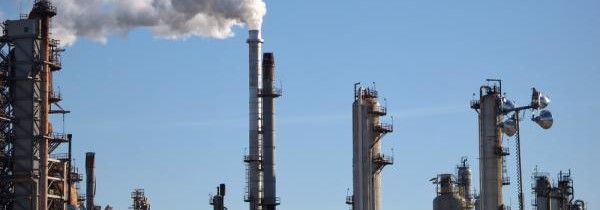Fossil fuel lobby could be forced to declare interests at UN talks
A push from developing countries to force fossil fuel lobbyists taking part in UN climate talks to declare their conflicts of interest has won a significant battle against resistance from the world’s biggest economies including the European Union, US and Australia.
The UN framework convention on climate change (UNFCCC) has agreed to enhance “openness and transparency” for outside parties and will accept submissions from any stakeholder – which could be any person or group affected by climate change or climate change policy – on how it could do so.
“The result was pretty good – understanding that the world’s largest economic powers were adamantly opposed to anything to do with integrity or conflict of interest at all,” said Jesse Bragg from Corporate Accountability International, which has been running a campaign on the issue.
Since May 2016, Ecuador and Venezuela – on behalf of the Like Minded Group of Developing Countries that represents that majority of the world’s population – had been fighting to have a conflict of interest policy introduced where groups with “observer status” must declare their conflicts.
Organisations that have observer status, and can therefore attend meetings and walk the corridors of the conferences, include industry groups that represent all of the world’s biggest fossil fuel companies such as ExxonMobil, Shell, BP and BHP. Many of them have lobbied against policies aimed at reducing greenhouse gas emissions.
In May 2016 at a UNFCCC meeting in Bonn, the Venezuelan delegate said the Paris agreement was an “instrument between states” and made a “moral request” that lobbyists should have to declare conflicts of interest.
The move was successfully opposed by rich nations, with the US, EU, Norway and Australia leading the battle. But the issue was raised again in November at COP 22 in Marrakech and continued this month in Bonn where the Australian ambassador for the environment and lead delegate to the UNFCCC, Patrick Suckling, championed the role of fossil fuel companies in helping to craft climate change policy.
“Some of the companies being alluded to as the polluters of policy, they will be, some of them, the providers of the biggest and best solutions,” Suckling said. “And you could look at some of the statements coming out of ExxonMobil and Shell recently to underline that point.”
ExxonMobil famously hid their knowledge about climate change for decades and investigations have revealed they continue to fund efforts to manipulate public discussions of climate change.
On Tuesday, in a closed-door meeting in Bonn, the discussion continued with the US and Australia fighting to remove any language that included the phrase “conflict of interest” or “integrity”. The Guardian understands the US delegate argued that the US and Ecuador had “divergent views” on what integrity meant.
The US, New Zealand, Australia and the EU also opposed Ecuador’s moves to call for a reporting process, where stakeholders could submit their views on developing a conflict of interest policy, or on a way of improving the “integrity” of the UNFCCC’s engagement with non-party stakeholders.
But on Tuesday in Bonn, Ecuador successfully negotiated an agreement that committed the UNFCCC to enhance the “openness, transparency and inclusiveness of the UNFCCC process” and another that called for stakeholders to submit their views on how that could be achieved.
As a result, the discussion will continue in a year’s time, with the input of anyone who submits their views through the UNFCCC website.
The discussions appeared to shake-up the fossil fuel lobby, with some organising side events at the Bonn meeting to defend their role at the UNFCCC.
Stephen Eule, a climate analyst at the US Chamber of Commerce – a group with observer status at the UNFCCC – led one meeting where he spoke of the need to engage the coal industry; described the US commitments under the Paris agreement as “unrealistically ambitious”; and approvingly described Donald Trump’s moves to dismantle Barack Obama’s environmental regulations.
Eule said the Paris agreement was “lopsided and puts the US at a competitive disadvantage”, saying he expects the Trump administration to negotiate “to get a better deal for the US”.
In a piece published on a US Chamber of Commerce website, Eule defended the role the body plays in the the UNFCCC processes, saying it would continue to “look after the interests of our members and speak out on the issues that concern us”.
According to a Corporate Accountability International report, the US Chamber of Commerce has received millions of dollars from ExxonMobil for “public information campaigns” and executives from Peabody Energy, ConocoPhillips, and Sempra Energy sit on its board of directors.
“As longs as your business model depends on extracting and burning fossil fuels, you have no place helping to craft climate policy,” Bragg said. “Your profit incentive is going to keep you from doing the right thing. And, frankly, corporations have a duty to maximise profits – so they would be in violation of their shareholders if they were doing anything but.”
Fonte: The Guardian



